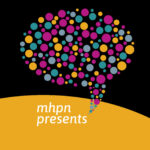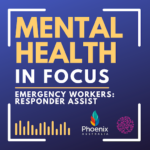-
Networks
About Networks
Continue readingConnecting mental health practitioners to improve interdisciplinary mental health care in Australia.
-
Webinars
Webinars
Learn moreMHPN’s interactive webinars feature case-based discussions and Q&A sessions led by top experts, modeling interdisciplinary practice and collaborative care.
-
Podcasts
Podcasts
All episodesOur podcasts feature local and international mental health experts in conversation on a variety of topics related to mental wellbeing, interdisciplinary practice, and collaborative care.
-
Partnerships
About Networks
Connecting mental health practitioners to improve interdisciplinary mental health care in Australia.
Podcasts
Our podcasts feature local and international mental health experts in conversation on a variety of topics related to mental wellbeing, interdisciplinary practice, and collaborative care.
Webinars
MHPN’s interactive webinars feature case-based discussions and Q&A sessions led by top experts, modeling interdisciplinary practice and collaborative care.








